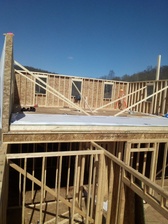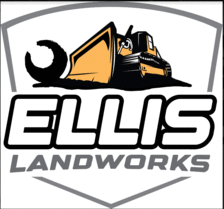
Get matched with top gas log pros in Barnesville, OH
Enter your zip and get matched with up to 5 pros
Need a pro for your gas log service project in Barnesville, OH?
Verified Reviews for Gas Log Service pros in Barnesville, OH
*The Angi rating for Gas Log Service companies in Barnesville, OH is a rating based on verified reviews from our community of homeowners who have used these pros to meet their Gas Log Service needs.
*The HomeAdvisor rating for Gas Log Service companies in Barnesville, OH is a rating based on verified reviews from our community of homeowners who have used these pros to meet their Gas Log Service needs.
Last update on January 17, 2026
Find Gas log pros in Barnesville

Chimneys R Us, LLC
Chimneys R Us, LLC
We pride our company on reliability, great communication, integrity and quality work. We are experts in our trade and will do our best to keep you as educated as we can on your particular task or project. We look forward to earning your business!
"I called for a free estimate, Justin came promtly and inspected the chimey. He showed me pictures of the problems and spelled out all the options. I explained to him that my cellar has floode due the problems and was anxious to get the repairs done. Justin quoted a price that was fair and much lower then any other estimates. To my surprise he said that he could do the job that day. He kept sending me pictures as the work progressed so I knew exactlywhat he was doing. He was professional and honest about what needed to be done. I was more then pleased with him and the company. I highly recommend .Chimneys are us."
Andrea R on March 2024
We pride our company on reliability, great communication, integrity and quality work. We are experts in our trade and will do our best to keep you as educated as we can on your particular task or project. We look forward to earning your business!
"I called for a free estimate, Justin came promtly and inspected the chimey. He showed me pictures of the problems and spelled out all the options. I explained to him that my cellar has floode due the problems and was anxious to get the repairs done. Justin quoted a price that was fair and much lower then any other estimates. To my surprise he said that he could do the job that day. He kept sending me pictures as the work progressed so I knew exactlywhat he was doing. He was professional and honest about what needed to be done. I was more then pleased with him and the company. I highly recommend .Chimneys are us."
Andrea R on March 2024
Professional Appliance Solutions LLC
Professional Appliance Solutions LLC
Professional Appliance Solutions LLC is committed to excellence in every aspect of our business. We uphold a standard of integrity bound by fairness, honesty, and personal responsibility. Our distinction is the quality of service we bring to our customers. Accurate knowledge of our trade combined with ability is what makes us true professionals. Above all, we are watchful of our customers' interests and make their concerns the basis of our business.
"Job well done! "
Andrew O on January 2026
Professional Appliance Solutions LLC is committed to excellence in every aspect of our business. We uphold a standard of integrity bound by fairness, honesty, and personal responsibility. Our distinction is the quality of service we bring to our customers. Accurate knowledge of our trade combined with ability is what makes us true professionals. Above all, we are watchful of our customers' interests and make their concerns the basis of our business.
"Job well done! "
Andrew O on January 2026
Shamrock Maintenance, Corp.
Shamrock Maintenance, Corp.
Serving PA, Shamrock Chimney will provide you with a dedicated approach to ensure your chimney is kept clean and safe. Our team provides chimney solutions for every problem, protecting homes from dangers of leaking chimneys and flues. Call us today to schedule your next appointment.
"Used a shop vac to sweep what they did get out, leaving a coat of dust on everything in our living room. Used 1 sponge they wet once to clean. We were quoted $75, with multiple discussions on what they could do. Explained all the $75 was for inspection and sweep from the top of chimney, which we had removed last year. $600 for a deep cleaning and then tried to charge $1200. If this was a deep cleaning, I ll eat my hat. We signed contract with no amount on it."
Mary B on September 2025
Serving PA, Shamrock Chimney will provide you with a dedicated approach to ensure your chimney is kept clean and safe. Our team provides chimney solutions for every problem, protecting homes from dangers of leaking chimneys and flues. Call us today to schedule your next appointment.
"Used a shop vac to sweep what they did get out, leaving a coat of dust on everything in our living room. Used 1 sponge they wet once to clean. We were quoted $75, with multiple discussions on what they could do. Explained all the $75 was for inspection and sweep from the top of chimney, which we had removed last year. $600 for a deep cleaning and then tried to charge $1200. If this was a deep cleaning, I ll eat my hat. We signed contract with no amount on it."
Mary B on September 2025

AppliancePartsPros.com
AppliancePartsPros.com
Since 1999, we've helped millions of do-it-yourselfers save money and fix their broken appliances quickly by providing quality appliance parts and free repair advice. We are only an online appliance parts retailer that offers a 365 day warranty and fast shipping. We also offer technical advice and diagnosis totally free 6 days a week. If you are interested in repairing your own appliance, please call us at 1-877-477-7278 or click live chat on our web site. We will help diagnose the problem and provide you with all the necessary information for the repair free of charge. It's better with the Pros!™ Avoid costly service calls - visit us at http://www.appliancepartspros.com
"Beware of shipping issues with this company. Ordered an ice maker installation kit on 10/10/25. Shipping was due no later than 10/20 according to company and FedEx tracking. FedEx tracking showed the package at their facility for 8 days without moving beginning on 10/15. Called FedEx 3 times. Each time they said they cannot find package and I have to contact shipper. Shipper has to make a claim, they will not mark it as lost. Called Appliance Parts Pros twice. Each time they say FedEx has to mark package lost before they will do anything. They also state they have to wait 14 days from them before doing anything because of their contract with FedEx. I don't care about their contract, I want what was ordered and paid for. Just going in circles with them and FedEX. If they shipped after 14 days it would be 22 days from that point, 32 days from the date of order if they shipped it that day. There was a deadline for installing this part before tenants arrive. They did not care, would not m"
Ron R on October 2025
Since 1999, we've helped millions of do-it-yourselfers save money and fix their broken appliances quickly by providing quality appliance parts and free repair advice. We are only an online appliance parts retailer that offers a 365 day warranty and fast shipping. We also offer technical advice and diagnosis totally free 6 days a week. If you are interested in repairing your own appliance, please call us at 1-877-477-7278 or click live chat on our web site. We will help diagnose the problem and provide you with all the necessary information for the repair free of charge. It's better with the Pros!™ Avoid costly service calls - visit us at http://www.appliancepartspros.com
"Beware of shipping issues with this company. Ordered an ice maker installation kit on 10/10/25. Shipping was due no later than 10/20 according to company and FedEx tracking. FedEx tracking showed the package at their facility for 8 days without moving beginning on 10/15. Called FedEx 3 times. Each time they said they cannot find package and I have to contact shipper. Shipper has to make a claim, they will not mark it as lost. Called Appliance Parts Pros twice. Each time they say FedEx has to mark package lost before they will do anything. They also state they have to wait 14 days from them before doing anything because of their contract with FedEx. I don't care about their contract, I want what was ordered and paid for. Just going in circles with them and FedEX. If they shipped after 14 days it would be 22 days from that point, 32 days from the date of order if they shipped it that day. There was a deadline for installing this part before tenants arrive. They did not care, would not m"
Ron R on October 2025

Acculevel Inc
Acculevel Inc
Acculevel is your foundation repair expert, serving Indiana, Illinois, Kentucky, and Ohio and been in business since 1996. Most of our repairs come with a life of the structure warranty. Acculevel begins by evaluating your entire foundation system, checking your property for the signs and causes of foundation failure. From foundation & crawlspace repair to waterproofing & encapsulation systems, Acculevel can help you protect your home-- possibly the most valuable investment you'll ever make. A dry home is a healthy home. Acculevel is committed to providing the most technologically advanced repairs to help keep your home dry and on a safe foundation. A strong foundation protects your home's structure, lowers utility bills and maintains the value of your property. Check our pictures for the signs & symptoms of foundation & water damage, and then call Acculevel for your free visual inspection. 1-866-669-3349
"What made their service so good was their professionalism; they didn't stop working until the job was done. No matter what little problems came up, they kept going. They are excellent, professional, and very pleasant."
Melessa T on January 2026
Acculevel is your foundation repair expert, serving Indiana, Illinois, Kentucky, and Ohio and been in business since 1996. Most of our repairs come with a life of the structure warranty. Acculevel begins by evaluating your entire foundation system, checking your property for the signs and causes of foundation failure. From foundation & crawlspace repair to waterproofing & encapsulation systems, Acculevel can help you protect your home-- possibly the most valuable investment you'll ever make. A dry home is a healthy home. Acculevel is committed to providing the most technologically advanced repairs to help keep your home dry and on a safe foundation. A strong foundation protects your home's structure, lowers utility bills and maintains the value of your property. Check our pictures for the signs & symptoms of foundation & water damage, and then call Acculevel for your free visual inspection. 1-866-669-3349
"What made their service so good was their professionalism; they didn't stop working until the job was done. No matter what little problems came up, they kept going. They are excellent, professional, and very pleasant."
Melessa T on January 2026

Matthews Wall Anchor & Waterproofing Services
Matthews Wall Anchor & Waterproofing Services
Matthews Wall Anchor Service has been serving homeowners in and around Pittsburgh, Youngstown and Cleveland for over 30 years. As a nationally recognized foundation repair and basement waterproofing contractor our services include basement waterproofing, foundation repair and basement wall repair. Matthews offers a variety of products and services to permanently correct basement and foundation problems. Award wining. Additional DBA - MWA Acquisition LLC .
"The salesperson David was very honest and had no interest in upselling. He strongly advised against any interior drains for my basement, and he instead recommended an exterior drain called HydroBlox for my backyard. The estimate for the HydroBlox was $3,400. The installation occurred a few weeks later. Three employees used a machine to dig a trench in my backyard, and then because of utility lines, they hand-dug another trench in my side yard. They installed the pieces of HydroBlox and covered them with dirt. I expect the HydroBlox to properly drain the water from my yard, but if they do not, then I will update my review in the future."
Tiffany Y on February 2021
Matthews Wall Anchor Service has been serving homeowners in and around Pittsburgh, Youngstown and Cleveland for over 30 years. As a nationally recognized foundation repair and basement waterproofing contractor our services include basement waterproofing, foundation repair and basement wall repair. Matthews offers a variety of products and services to permanently correct basement and foundation problems. Award wining. Additional DBA - MWA Acquisition LLC .
"The salesperson David was very honest and had no interest in upselling. He strongly advised against any interior drains for my basement, and he instead recommended an exterior drain called HydroBlox for my backyard. The estimate for the HydroBlox was $3,400. The installation occurred a few weeks later. Three employees used a machine to dig a trench in my backyard, and then because of utility lines, they hand-dug another trench in my side yard. They installed the pieces of HydroBlox and covered them with dirt. I expect the HydroBlox to properly drain the water from my yard, but if they do not, then I will update my review in the future."
Tiffany Y on February 2021

Gunner Roofing
Gunner Roofing
Gunner Roofing knows your home is everything. That’s why Gunner was founded with one clear mission: to bring your home improvement project to life with exceptional quality, a personalized experience, and innovative tech to make your project easier than ever. We’re the first roofing company to service nationally as well as the first to offer accurate online quotes in under an hour meaning no more hours on the phone or juggling appointments to meet a dodgy contractor. Gunner is here to make it easy for you - we even help you navigate financing your project through Wells Fargo and assist with permitting. We’re proud to be your go-to roofing, siding, windows, and gutter installer, working with only the industry’s most trusted suppliers like Andersen Windows, Brava Roof Tile, GAF, and James Hardie. Whether you want to upgrade your home’s exterior or ensure your house will protect your family through the next storm, Gunner is excited to work with you as your trusted partner. Skeptical? We get it, this is no small decision. Check out our hundreds of 5-star reviews on google and find us on Inc. 5000 Fastest Growing Companies List, Fast Company’s Most Innovative Companies List, Good Housekeeping Home Reno Award Winners Page, Architectural Digest and more! If you’re curious about how much your project would cost, get your free roofing quote at https://www.gunnerroofing.com/ today - no commitment necessary.
"I am sure that all positive reviews for this company are fake. Nothing that was promised to me was delivered. My siding project is still ongoing for over 1 month. Was told that it would be done in week. Had one rain day. They have system like this: 1) sales person who never installed anything he will promise you things that obviously are not true, 2) crew that is subcontracted but not Gunner, mine was driving for over 2 hours away, 3) person who oversees the project but has little control over anything, no supply, doesn't know the crew, crew does not listen to him, main office does not listen to him, 4) main office does not reply to you. They just tell me to talk to project manager who has no control. So you understand that if there are any issue you are on your own. Quality or work is not good. Many times I had to point to the crew what's wrong, planks are broken yet they were still installing it, caulking is done they way that I can do it better, they cut wires to awning etc"
Eduard S on September 2025
Gunner Roofing knows your home is everything. That’s why Gunner was founded with one clear mission: to bring your home improvement project to life with exceptional quality, a personalized experience, and innovative tech to make your project easier than ever. We’re the first roofing company to service nationally as well as the first to offer accurate online quotes in under an hour meaning no more hours on the phone or juggling appointments to meet a dodgy contractor. Gunner is here to make it easy for you - we even help you navigate financing your project through Wells Fargo and assist with permitting. We’re proud to be your go-to roofing, siding, windows, and gutter installer, working with only the industry’s most trusted suppliers like Andersen Windows, Brava Roof Tile, GAF, and James Hardie. Whether you want to upgrade your home’s exterior or ensure your house will protect your family through the next storm, Gunner is excited to work with you as your trusted partner. Skeptical? We get it, this is no small decision. Check out our hundreds of 5-star reviews on google and find us on Inc. 5000 Fastest Growing Companies List, Fast Company’s Most Innovative Companies List, Good Housekeeping Home Reno Award Winners Page, Architectural Digest and more! If you’re curious about how much your project would cost, get your free roofing quote at https://www.gunnerroofing.com/ today - no commitment necessary.
"I am sure that all positive reviews for this company are fake. Nothing that was promised to me was delivered. My siding project is still ongoing for over 1 month. Was told that it would be done in week. Had one rain day. They have system like this: 1) sales person who never installed anything he will promise you things that obviously are not true, 2) crew that is subcontracted but not Gunner, mine was driving for over 2 hours away, 3) person who oversees the project but has little control over anything, no supply, doesn't know the crew, crew does not listen to him, main office does not listen to him, 4) main office does not reply to you. They just tell me to talk to project manager who has no control. So you understand that if there are any issue you are on your own. Quality or work is not good. Many times I had to point to the crew what's wrong, planks are broken yet they were still installing it, caulking is done they way that I can do it better, they cut wires to awning etc"
Eduard S on September 2025
MOMPER INSULATION
MOMPER INSULATION
ADDITIONAL CONTACT: (260-432-7543) Linda Linnemeier
ADDITIONAL CONTACT: (260-432-7543) Linda Linnemeier

Batesville Monument
Batesville Monument
Welcome to Batesville Monument! Choosing a memorial is a meaningful experience. Your choice to honor your loved one will serve as a lasting tribute for all time. Granite monuments are custom built to your specifications of shape, size and color, then further personalized by artwork, design and craftsmanship. Your options are endless; your monument will be truly unique. At Batesville Monument, we recognize that your choices are unlimited. We acknowledge the rarity in which this occasion presents itself, and we understand the importance of making the right decisions. For these reasons, we strive to educate you, to give you information. We want you to take an active role in the selection of your memorial, and we will be here to help guide you. We are available by appointment anytime; please call (812) 569-9597 for more information. Your memorial will be a lasting impression, let Batesville Monument make it with you
"Monument was very beautiful. More than we could have asked for. Everything we wanted."
Debbie H on August 2024
Welcome to Batesville Monument! Choosing a memorial is a meaningful experience. Your choice to honor your loved one will serve as a lasting tribute for all time. Granite monuments are custom built to your specifications of shape, size and color, then further personalized by artwork, design and craftsmanship. Your options are endless; your monument will be truly unique. At Batesville Monument, we recognize that your choices are unlimited. We acknowledge the rarity in which this occasion presents itself, and we understand the importance of making the right decisions. For these reasons, we strive to educate you, to give you information. We want you to take an active role in the selection of your memorial, and we will be here to help guide you. We are available by appointment anytime; please call (812) 569-9597 for more information. Your memorial will be a lasting impression, let Batesville Monument make it with you
"Monument was very beautiful. More than we could have asked for. Everything we wanted."
Debbie H on August 2024
American Clean & Seal Inc
American Clean & Seal Inc
10 employees, no sub-contracting of work. Cost is determined by the specific job, we strive to give a fair price for professional and long lasting results. Travel charges may apply.
"American clean and seal did a great job and used a superior product to seal . I have noticed my neighbors use other companies and their Concrete is now discolored . I would highly recommend !"
Naeem B on August 2018
10 employees, no sub-contracting of work. Cost is determined by the specific job, we strive to give a fair price for professional and long lasting results. Travel charges may apply.
"American clean and seal did a great job and used a superior product to seal . I have noticed my neighbors use other companies and their Concrete is now discolored . I would highly recommend !"
Naeem B on August 2018
The homeowners guide to home care is here
From average costs to expert advice, get all the answers you need to get your job done.

Regularly replacing your HVAC filter regularly is vital for a healthy system. Learn how much an HVAC filter replacement costs with this informative guide.

Switching from oil to gas heating could impact your savings. This guide will help you understand the cost to convert from an oil furnace to a gas furnace.

Faulty AC drip pans can lead to pesky leaks and improper home cooling. Find out how much AC drip pan replacement costs for your cooling system.

Baseboard heater covers can endure a lot of wear and tear, but eventually you’ll want to replace them. Here’s the best way to switch out baseboard heater covers.

Energy bills rising? Here’s how to perform a DIY duct leakage test to locate any damage in your ductwork and restore your energy-efficient home.

Having dirty evaporator and condenser coils works your HVAC system harder than it needs to. Here’s how to clean your air conditioner coils like a pro.
- Plumbing in Barnesville
- Tree Service in Barnesville
- Electrical in Barnesville
- Epoxy Flooring in Barnesville
- Septic Tank in Barnesville
- Pressure Washing in Barnesville
- Mold Testing And Remediation in Barnesville
- Swimming Pools in Barnesville
- Excavating in Barnesville
- Cleaning in Barnesville
- Roofing in Barnesville
- Plaster Plaster Repair in Barnesville
- Pest Control in Barnesville
- Fencing in Barnesville
- Moving in Barnesville
- Painting in Barnesville
- Garage Doors in Barnesville
- Doors in Barnesville
- Landscaping in Barnesville
- Windows in Barnesville
- Locksmiths in Barnesville
- Handyman Service in Barnesville
- Cabinet Makers in Barnesville
- Siding in Barnesville
- Asbestos Removal in Barnesville
- Mailbox Repair in Barnesville
- Deck Maintenance in Barnesville
- Dumpster Rental in Barnesville
- Floor Cleaning in Barnesville
- Small Appliance Repair in Barnesville
- 🌱 "Mow a small front yard"
- 🛠 "Fix a leaking pipe under the sink"
- 🏠 "Repair shingles on an asphalt roof"







